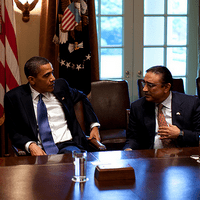As the Republican-controlled House advances its legislative agenda, U.S. civilian assistance to Pakistan looks likely to be one of the early casualties. In addition to new conditions on assistance to Pakistan, approved by two House panels, White House officials expect that the overall aid package is likely to shrink as well. But before lawmakers cut aid to Islamabad, they should consider the role it plays in realizing long-term U.S. interests.
The Enhanced Partnership with Pakistan Act of 2009, more commonly known as the Kerry-Lugar-Berman Act, tripled financial assistance to Pakistan's civilian institutions by pledging $1.5 billion annually for five years. The aid program is premised on the assumption that a stable, well-governed Pakistan is in the long-term interests of the United States. Strengthening Pakistani governance, it follows, requires bolstering elected, civilian rule. In the past the U.S. relied on an exclusive partnership with the Pakistani military at the expense of its relationship with other Pakistani institutions; Kerry-Lugar-Berman seeks to overcome this legacy.
This vision of U.S.-Pakistan relations has suffered deep setbacks over the past two years. Islamabad's refusal to hunt down Afghan militant groups has constantly fueled diplomatic tensions. The discovery in March that Osama bin Laden was comfortably ensconced in a major Pakistani military town -- and Washington's decision to capture him without informing Islamabad -- sent relations into a tailspin. In Washington, the momentum behind taking punitive action against Pakistan has grown stronger with each act of omission or commission -- and the civilian aid program is an easy target for an impatient Congress.

